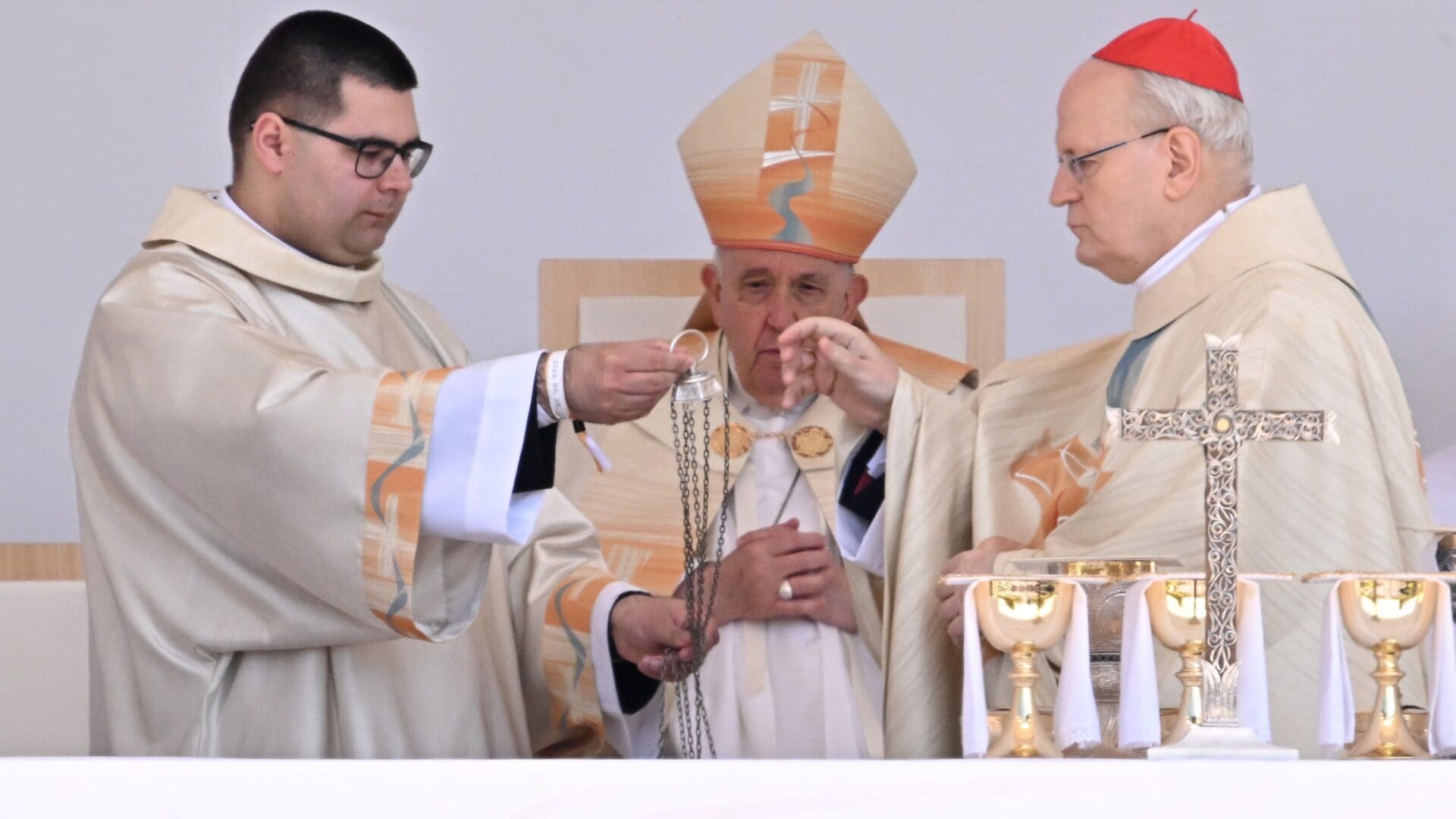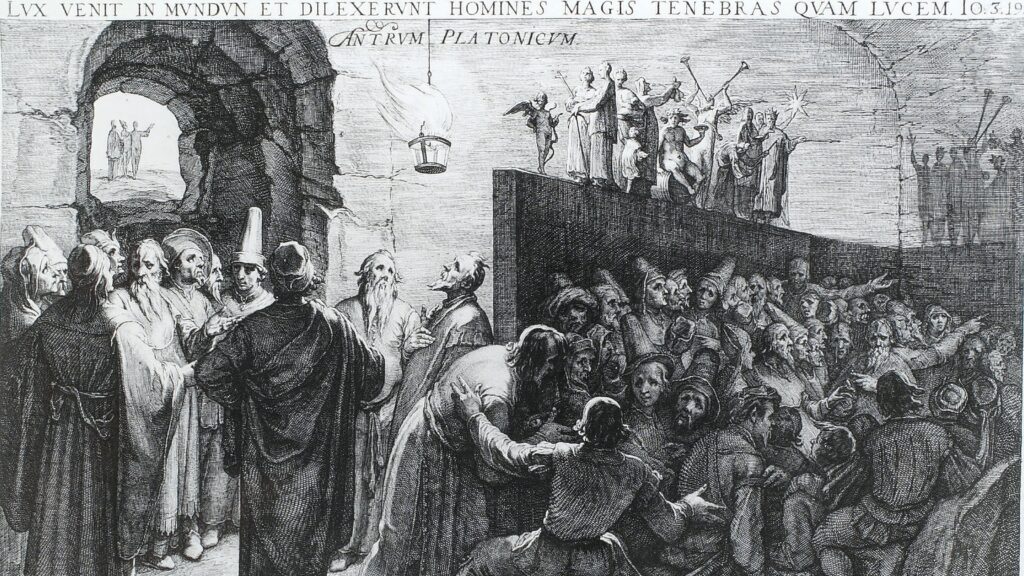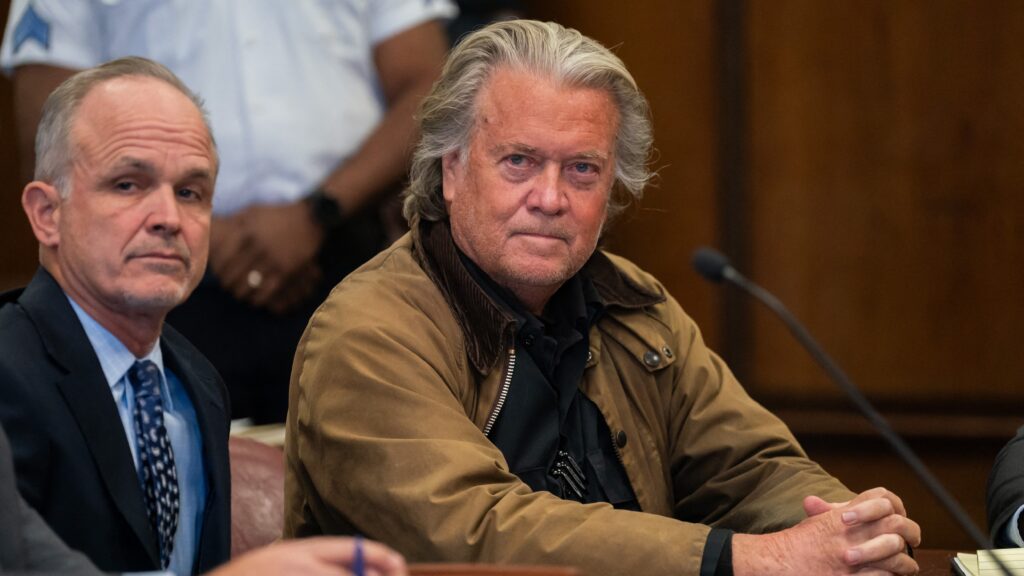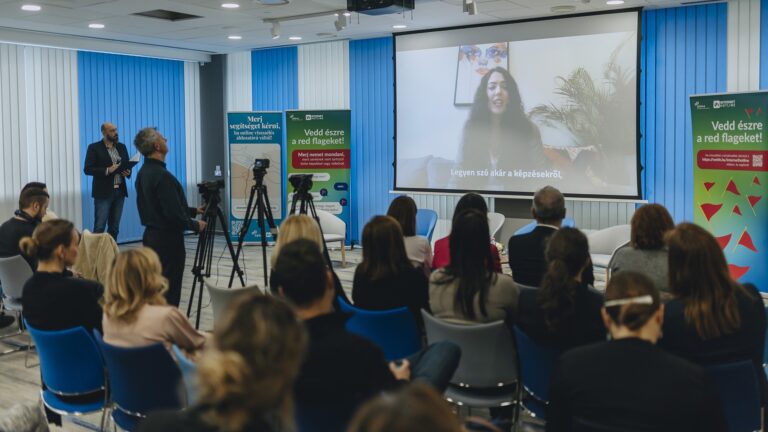His Most Reverend Eminence Cardinal Péter Erdő, Metropolitan Archbishop of Esztergom-Budapest and Primate of Hungary on 30 June at the Montecitorio Parliament Palace in Rome received the Vox Canonica Award. On receiving the news, the Cardinal said:
‘I am very happy to receive the Vox Canonica 2023 award from your editorial staff. Is is undoubtedly an important recognition, not only juridical but also theological and pastoral.’
There were also two distinguished speakers at the event, the Honourable Antonio Baldelli, member of the Italian Parliament and Professor Federico Gravino, of the University of Campania Luigi Vanvitelli.
Vox Canonica (Canonical Voice) is an online journal which strives to contribute to the juridical sciences through interviews, articles, insights. Each year it awards an individual who has made an extraordinary contribution in the canonical field, for which Cardinal Erdő was chosen.
Brief Biography
Cardinal Erdő was born in Budapest on 25 June 1952, the first of six children in a family of Catholic intellectuals. He was ordained priest on 18 June 1975 in Budapest. Between 1975 and 1977 he served in a parish in the city of Dorog. After obtaining a Doctorate in Theology in 1976, he received another Doctorate, this time in Canon Law in 1980 at the Pontifical Lateran University in Rome.
Erdő, between 1980 and 1986, taught theology in Esztergom; from 1986 to 1988 he was a lecturer and from 1988-2002 visiting professor at the Pontifical Gregorian University. From 1988 to 2002 he was professor of Canon Law and from 1988 to 2003 Rector of the Pázmány Péter Catholic University. From 1996 to 2003 he assumed the Deanery of the post-graduate Canon Law Institute. During his rectorship, the Pázmány Péter University gained pontifical status and opened a new Faculty of Information Technology.
On 5 November 1999, Erdő was nominated by Pope St John Paul II titular Bishop of Puppi and Auxiliary of Székesfehérvár, receiving episcopal consecration on 6 January 2000. On 7 December 2012, John Paul II appointed him Archbishop of Esztergom-Budapest and Primate of Hungary. He was created Cardinal on 21 October 2003.
In 2005 he was elected President of the Hungarian Bishops’ Conference, and was re-elected in 2010 for another five-year mandate until 2015. In 2006 he was elected President of the Council of the Bishop’s Conferences of Europe, and re-elected in 2011 for an additional five year term. He participated in the city missions in the great European cities (Vienna, Paris, Lisbon, Brussels and Budapest). He was one of the initiators and one of the two co-presidents of the Catholic-Orthodox European Forum.
Erdő requested that the Hungarian Chief Prosecutor’s Office legally, morally, and politically rehabilitate his predecessor, Cardinal József Mindszenty, who heroically fought against the Stalinist regime in Hungary. Mindszenty was arrested 26 December 1948; he was tried for conspiracy and tortured by the communists, after which he sought refuge in the American embassy in Budapest on 4 November 1956, where he resided without being able to leave the premisses for the next fifteen years.
It was due to Erdő’s intervention that the Chief Prosecutor’s Office ultimately rehabilitated Mindszenty.
Defender of the Institution of the Family
There could not have been a better recipient of the Vox Canonica award than Cardinal Erdő. In 2015, he was chosen to give the opening remarks at the Synod on the Family in Vatican City. For some years prior, at least after Pope Benedict XVI resigned from the Throne of St. Peter, many theologians, including bishops and cardinals, had been seeking to alter Church doctrine of the institution of the family, specifically to allow divorced-and-remarried Catholics to receive holy Communion, despite being in a state of what the Church considers permanent adultery.
Cardinal Erdő, to the disappointment of progressive churchmen, reaffirmed the importance of the divine doctrine and reality of indissolubility in marriage:
‘Regarding the divorced and civilly remarried, a merciful, pastoral accompaniment is only right—an accompaniment, however, which leaves no doubt about the truth of the indissolubility of marriage taught by Jesus Christ himself. The mercy of God offers to sinners pardon, but demands conversion.’
The Cardinal stressed:
‘Jesus Himself, referring to the original plan of the human couple, reaffirms the indissoluble union between a man and a woman, though saying to the Pharisees that “for your hardness of heart Moses allowed you to divorce your wives, but from the beginning it was not so.” (Matthew 19, 8) The indissolubility of marriage—“what therefore God has joined together, let no man put asunder” (Matthew 19, 6)—is to be understood not as a “yoke” imposed on persons but as a “gift” to a husband and wife united in marriage. Jesus was born in a family; He began to work His signs at the wedding of Cana and He announced the meaning of marriage as the fullness of revelation that restores the original divine plan. (Matthew 19, 3) At the same time, however, He put what he taught into practice and manifested the true meaning of mercy, clearly illustrated in His meeting with the Samaritan woman (John 4, 1-30) and with the adulteress (John 8, 1-11). By looking at the sinner with love, Jesus leads the person to repentance and conversion (“Go and sin no more”), which is the basis for forgiveness.’
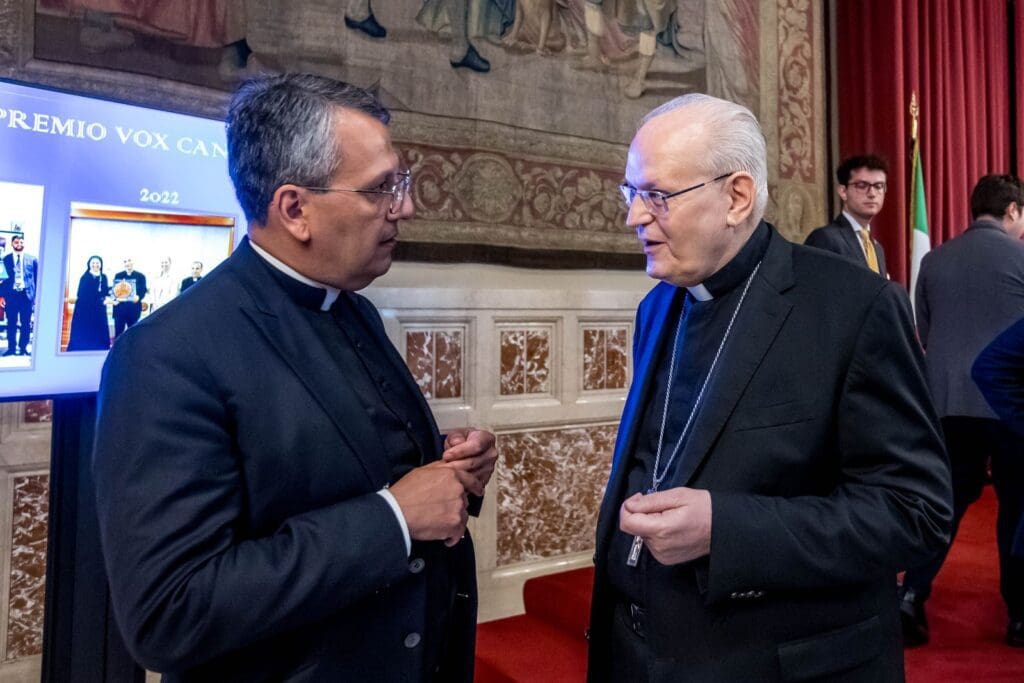
Just after the presentation of the award, I had the sole honour among distinguished guests to speak in private with the His Eminence. I asked him about the situation of the institution of the family, for which he responded that he was content that Hungary has been pulling the reins on the natural notion that marriage is exclusively between man and woman, with the end of the procreation and formation of children. While he acknowledged the battle do defend the sanctity of the family is not over, he expressed hope that in the end Christ’s teachings will prevail.
In the United States we have a saying: ‘The family that prays together, stays together.’ This notion is what is lacking in society, for which during the International Eucharistic Congress held in Budapest in 2021 Cardinal Erdő recalled that the world is in ‘burning need’ of the witness of a united Christianity. These are words of a true churchman!

